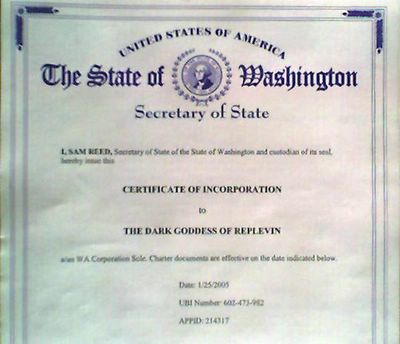John Ikerd suggests that the American pursuit of happiness, if "happiness" is equated with "pleasure," has led to unhappiness instead.
The concept of a happiness not dependent on conditions is an Eastern concept that predates the eighteenth-century Western notion of happiness espoused in the Declaration of Independence. The best way I can think of to explain it without lapsing into Buddhist jargon is that such happiness is a form that is discovered to be already here with us, and does not need to be pursued. Andrew Sullivan sneaks up on this notion but I think does not acknowledge the point that there is an alternative between the polarities he posits of pursuit and capitulation.
As such, the pursuit of happiness by discovering that it is already here is also both espoused by the Declaration of Independence and protected, to the extent that the pursuit of happiness is protected at all, by the Constitution and the Bill of Rights (though it is not enumerated in either of the last two documents).
Here's an interesting factual tidbit: There are only two political documents that make reference to the "pursuit of happiness": the American Declaration of Independence, and the 1947 constitution of the nation of Japan, which was of course provided for Japan by Allied Occupation forces.
Have the Japanese become happier since their right to pursue happiness has been guaranteed in Article 13 of their constitution?
6.28.2005
Subscribe to:
Post Comments (Atom)

No comments:
Post a Comment